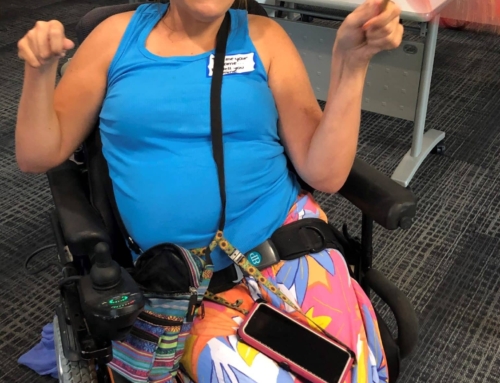 Q: I was just in conversation with one of our mentors for the Christian Life class students. One of the pupils in our present class has some limitations and needs special attention. Both of the people working with her are not sure if she has a clear understanding of the gospel. How do we discern what she is capable of understanding and her preparedness for baptism?
Q: I was just in conversation with one of our mentors for the Christian Life class students. One of the pupils in our present class has some limitations and needs special attention. Both of the people working with her are not sure if she has a clear understanding of the gospel. How do we discern what she is capable of understanding and her preparedness for baptism?
The question you ask is one that many, include myself, continue to explore. I may be answering more than your asking, but, it’s where my thoughts are at the moment. I don’t offer this as a definitive answer, but as a journey.
I’m not sure that I have a ‘clear understanding’ of the gospel sometimes. I think of Paul’s statement “I see in part, I know in part, but one day I will see and know in whole”. All of our knowledge falls so short of the complete revelation of God. Does God reject us, or rate us on the simplicity of our understandings? No, He accepts us right where we are and the works with us on the little we are able to understand of the immeasurableness and immutability of God. I think of St. Anslem’s wrestling’s as he concluded that “God is greater than what we are able conceive… that as soon as the human mind conceives of the thing, it makes it too small and it can’t be God – or something like that.
I think it helps us when we re-orient ourselves to what little knowledge, although wonderful, we really have. All that to say, that understanding of gospel and preparedness for baptism is truly vital and necessary, yet, captured at the same time in simplest steps faith. I love 1 John 5:2 –Do you love the Father, do you love the Son, do you want to do what God wants?
The other matter is often we see the proclamation of the Gospel as primarily a verbal ‘hearing’ experience. I believe that we teach those with exceptional needs much about God’s love, grace, mercy, acceptance, forgiveness, gentleness and hope by how we serve and consider those the world see as ‘least of these’. It would seem that the gospel is also proclaimed in a tangible expression and experience of the Good News. I encourage you to check out a posting on chdevtions.blogspot.com dated June 12 –(6 postings) entitled ‘Crowd or Community’ label: serving those with exceptional needs – It’s is a discussion of Mark 2 and the paralytic (disabled) man. I refer to this because of the discussion on ‘us’ as community and perhaps a different method that God views us – not only individualistically, but also as a ‘being in community’, and as that community, we are able to bear and carry those with disabilities before God, and He responds, embraces and heals the one (who did not ask I might add), because of the faith of the small community who lowered him through the roof.
I think there’s something here for us, I’m still thinking it through – that it seems God might be open to accept the broken and disabled on the basis of being a part of the community of faith. There’s all kinds of edges on this, — but I think there’s something to “our communal faith expression and understanding” as we care for, and embrace those the world considers ‘least of these’. But as a community it means we have a responsibility to express that faith communally including those with disabilities as part of that community, and they become part of our expression, verbal and physical, of the Gospel of Salvation. Although the woman whom your mentor’s are working with may have a ‘limited’ ability to cognitively receive the gospel, in the larger context of her community, she is a participant and recipient of it. I hope this helps?


